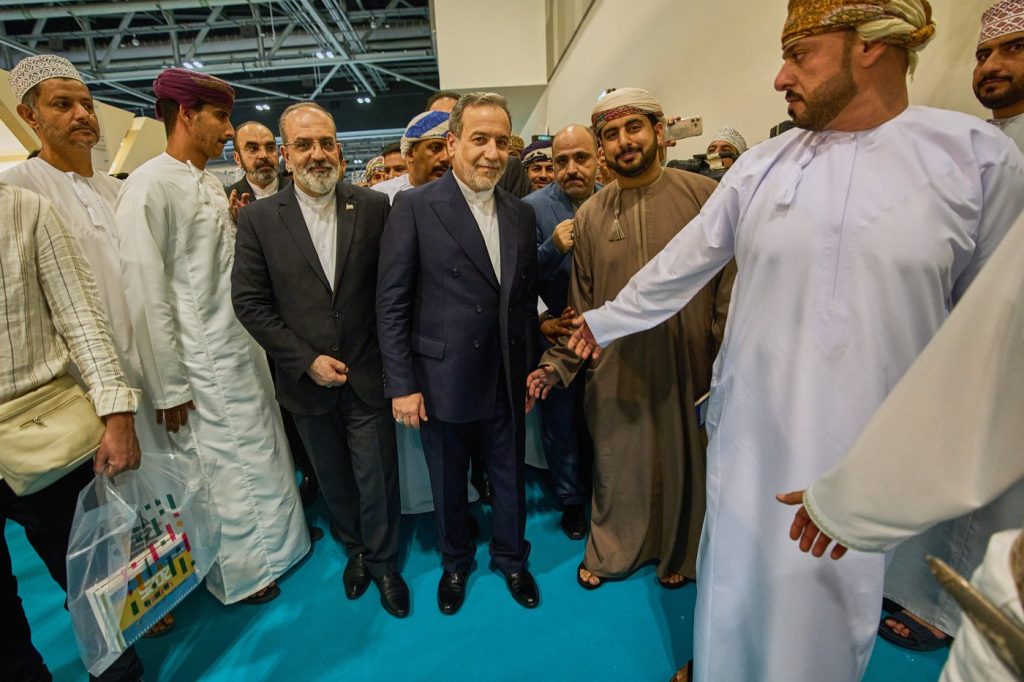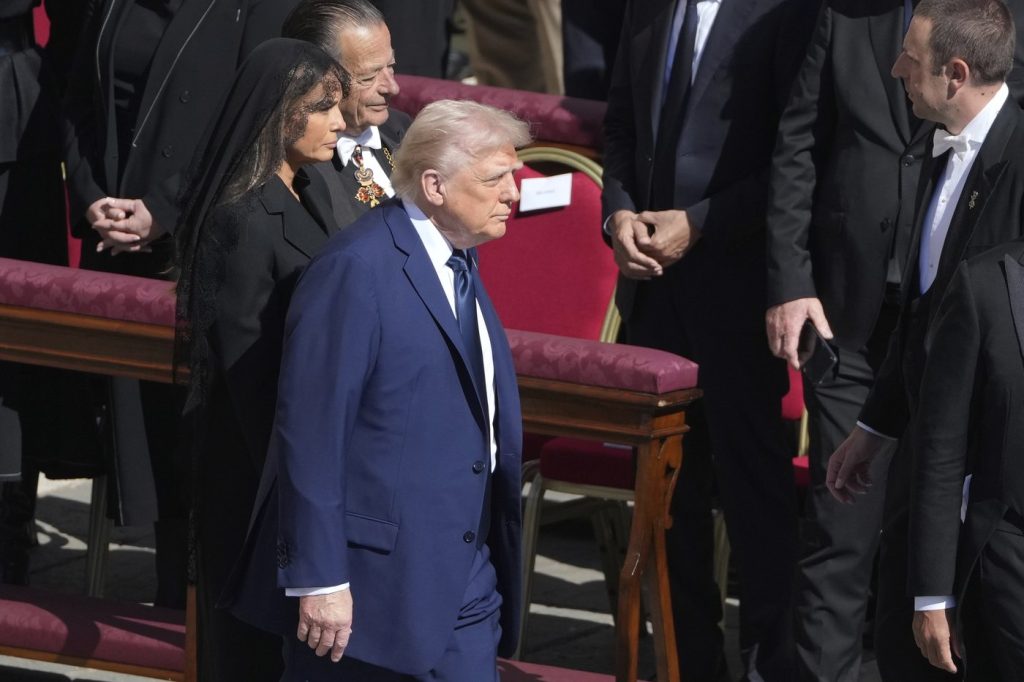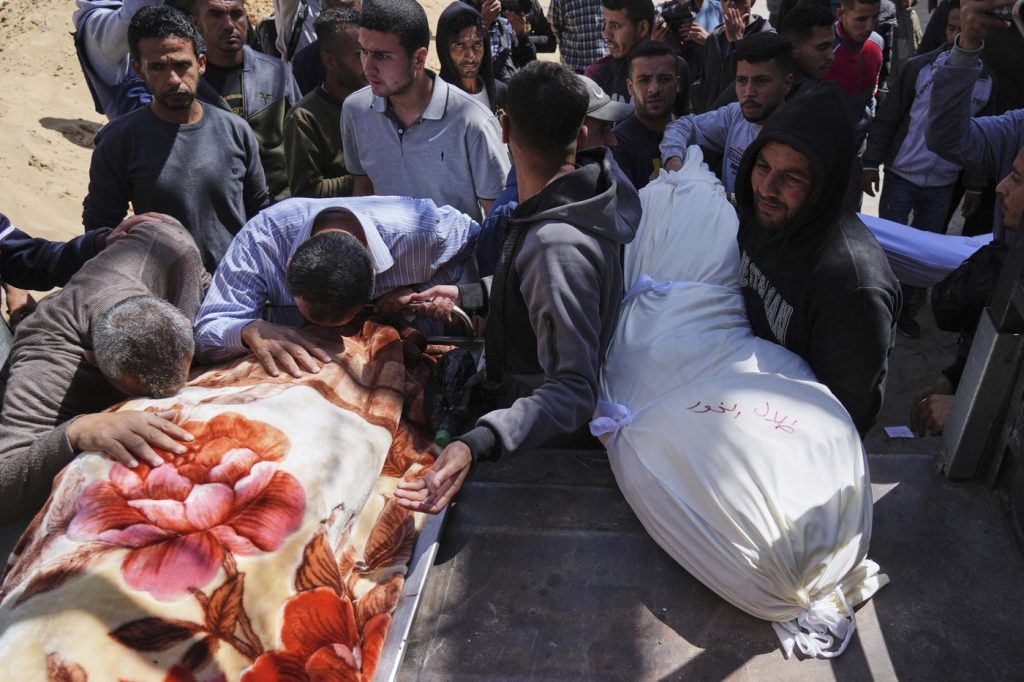MUSCAT, Oman (AP) — In an intensive meeting held in Oman on Saturday, Iran and the United States engaged in significant negotiations regarding Tehran's advancing nuclear program. The discussions concluded with an agreement to continue deliberate talks, potentially culminating in another high-level meeting scheduled for the following weekend.
The talks, which lasted several hours in Muscat, the capital of Oman encompassed by mountains, featured exchanges of written points between the two parties. Iranian Foreign Minister Abbas Araghchi characterized the dialogues as "very serious and work-focused." He noted that the current negotiations were more profound than previous discussions and indicated progress towards settling some disagreements, although significant differences remain on major issues and finer details.
A senior U.S. administration official described the discussions as "positive and productive," emphasizing that they lasted over four hours. The official, who requested anonymity, noted that while much work remains to be done, further progress was achieved towards securing a comprehensive deal. The U.S. team expressed appreciation for Oman's facilitation of the talks and indicated plans for a subsequent meeting in Europe.
Omani Foreign Minister Badr al-Busaidi, who has mediated earlier rounds of negotiations both in Muscat and Rome, expressed optimism after the discussions, stating that both Iran and the U.S. shared a desire to reach an agreement grounded in mutual respect. Key principles and technical concerns were reportedly addressed, with further talks planned for the week ahead, including a high-level meeting provisionally set for May 3.
In the lead-up to the negotiations, Araghchi arrived in Oman on Friday, shortly before the discussions, and participated in media-covered events such as the Muscat International Book Fair. Meanwhile, U.S. envoy Steve Witkoff was in Moscow meeting with President Vladimir Putin, arriving in Oman on the day of the negotiations.
Coinciding with the high-stakes talks, a significant explosion occurred at a southern Iran port, resulting in 14 fatalities and approximately 750 injuries. Authorities did not immediately clarify the cause of the explosion, although initial assessments suggested it might involve a hazardous material. Reports linked the incident to a shipment of a chemical used for missile propellant in the region, although officials dismissed connections to the oil and gas sector.
The ongoing negotiations represent an effort to regulate Iran's nuclear program in exchange for the easing of stringent economic sanctions imposed by the United States, marking decades of hostilities between the two nations. Previous U.S. administrations, particularly under President Donald Trump, threatened potential military actions against Iran’s nuclear endeavors if diplomatic resolutions were not achieved. In contrast, Iranian officials have increasingly hinted at the possibility of pursuing a nuclear weapon if negotiations falter.
Following the U.S. withdrawal from the 2015 nuclear deal, which successfully curtailed Iran's nuclear activities, tensions have escalated sharply, exemplified by the ongoing uncertainty in the Middle East due to conflicts involving Israel and Hamas. Trump, who was en route to Rome for a prominent event, reiterated hopes for a diplomatic resolution that could facilitate a new nuclear agreement while emphasizing the threat of military action should negotiations fail.
On the Iranian side, Deputy Foreign Minister Majid Takht-e Ravanchi, an experienced figure from the 2015 nuclear talks, led the expert team. The U.S. delegation was under the direction of Michael Anton, a member of Secretary of State Marco Rubio's policy planning staff, who lacks the prior experience of those involved in previous negotiations. Iran continues to hold firm on key issues regarding its uranium enrichment, complicating the discussions as Witkoff's remarks alternated between positions on Iran's enrichment capabilities.
Despite the challenges, there exists a sense of cautious optimism among some Iranian citizens regarding the potential outcomes of the negotiations, as evidenced by the recent recovery of the Iranian rial against the U.S. dollar, which had previously suffered significant depreciation. The sentiment among the public reflects a willingness to engage in compromises while safeguarding national interests in the context of the nuclear program.












